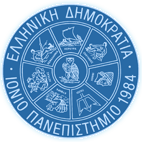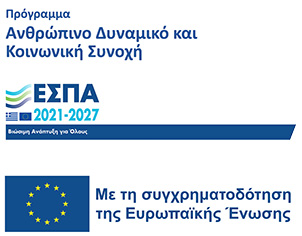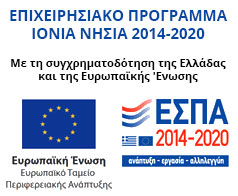Πρόγραμμα: REGIONS-2012-2013-1. Transnational cooperation between regional research-driven clusters
Θεματική ενότητα: Όλες οι θεματικές ενότητες
Αρμόδιος Φορέας: FP7 Capacities
Περιγραφή:
Description of topic
In the 2012-13 call, proposals shall support transnational co-operation of clusters that are active in one of following two domains:
a) RTD and innovation aspects of EU digital agenda Co-ordination and Support Actions (CSA) within 'Regions of Knowledge' will support the transnational co-operation of high potential research-driven clusters that address the research and innovation aspects of the EU digital agenda (section 2.5 of COM(2010) 245 final/2, Page 8 of 17 26.8.2010)8. Areas of particular interest are reinforcement of e-Infrastructures, cloud computing applications for government and science, new generation of web based applications and services including multilingual content, Internet of Things and key enabling technologies in ICT. Clusters should have the capability to leverage private investment in ICT research and to build sustainable partnerships between research and business. Such partnerships will drive initiativesfor open innovation in order to develop new ICT based products and services in their regions with the potential to perform on international markets. (Clusters in this domain are especially encouraged to contribute to setting up a regional digital agenda for the sake of competitiveness but also to foster digital literacy, skills and inclusion in order to overcome regional disparities, also including social innovation
b) Development of technologies and services relevant for the implementation of a 'resource efficient Europe' Coordination and Support Actions (CSA) under 'Regions of Knowledge' will support the transnational cooperation of research-driven clusters that are active in the development of technologies and services relevant for the realisation of the resource-efficient Europe. They should underpin the shift towards a resource-efficient, low-carbon economy to achieve sustainable growth which are in line with the Communication on 'A resource-efficient Europe Flagship initiative under the Europe 2020 Strategy'9 (COM(2011)21). The addressed technologies should increase the efficiency of using materials, water and energy. Application areas are for example renewable energies, smart grids, recycling, waste management, cleantechnologies, water treatment and eco-design. Clusters in both domains should have the capability to build sustainable partnerships between research and business, leverage private and public investments and drive the implementation of the Innovation Union. On the grounds of a sound business strategy, clusters are especially encouraged to contribute to setting up smart specialisation strategies in the regions. Projects should favour innovative and cross-disciplinary approaches. Applications may address both domains in one proposal if justified from an S & T point of view. However, no preference will be given to such proposals in comparison to those addressing only one domain.
Τελευταία ενημέρωση: 22-07-2011 12:32




